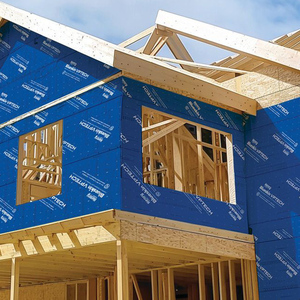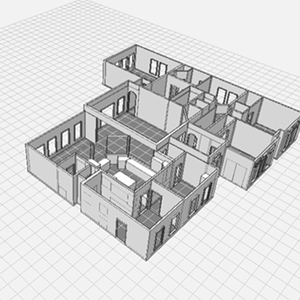Cost-Plus Contracts and the Reasons You Should Use Them
In theory, cost-plus contracts are a win-win for the contractor and the owner. Answer these questions before you decide to proceed with this type of construction contract.

In theory, cost-plus contracts (also known as Time and Materials contracts) are a win-win for the contractor and the owner.
The contractor’s risk is lowered because the price the owner pays is the cost the contractor incurs plus a predetermined rate. This “plus” is exactly what the contractor needs to cover the overhead expenses and make a profit.
The owner saves money because she doesn’t have to pay for anything not related to her job and avoids all the “fluff” that contractors add to their fixed-price contracts to cover the unknowns.
Sounds great, right?
Remember, I said in theory. Reality is a different story.
*NOTE: Nothing in this article should be considered legal or financial advice. All contracts should be reviewed by a legal professional familiar with your business.
In my previous post, I listed 10 provisions you should include in all your contracts. A cost-plus contract will not allow several of these provisions to be met prior to the start of construction. Some of these provisions are:
- Length of contract – if the costs are unknown, then how can the schedule be known?
- Project Scope – most cost-plus contracts have a general scope of work developed, but the scope has not been developed enough to provide a fixed price. If the project scope is complete, then why would a cost-plus contract be needed?
- Payment Schedule – The contractor can define the payment schedule for the progress payment, but since the length and scope of project is not known, then the payment schedule will keep increasing along with the project.
- Change Orders – If the project scope cannot be determined before the contract begins, then how can change orders be determined? Technically, everything is a change order since there is not fixed-price or pre-determined scope of work.
WHY USE A COST-PLUS CONTRACT?
A cost-plus contract is an attractive option for a contractor for these two reasons:
- The contractor cannot produce a proposal for the work because of incomplete information about the project, and therefore transfers the risk of the cost of the project to the owner.
- The contractor does not have the estimating experience or systems in place to produce a fixed price.
A cost-plus contract is an attractive option for an owner for these reasons:
- The plans are not complete.
- The owner wants to get started.
- The owner thinks that a cost-plus contract will save money.
These are horrible reasons to enter into a construction project.
All of these reasons involve a lack of information. Proceeding with a construction project without the proper information defined is a recipe for disaster.
WHAT’S WRONG WITH COST-PLUS CONTRACTS?
The issues listed below are just a few of the problems inherent with cost-plus contracts.
- The contractor has little to no incentive to keep costs low. The higher the “COST” the more money the contractor makes. This is a conflict of interest.
- Although the contract may be cost-plus, the owner still requests an estimate for the cost of the project in order to award the project. When this estimate is exceeded, then the owner will demand to know why. The most honest answer is that the contractor was just guessing at the estimate because he either A) didn’t have all the information or B) didn’t know how to develop a fixed price. But remember, this is cost-plus. The owner agrees to pay the costs, whatever the costs may be, and the fee associated with the work.
- Most cost-plus contracts stipulate that only project related costs will be paid by the owner. Overhead expenses for the overall business are not allowed. But how is the contractor supposed to run the business of contracting if the owner is not willing to pay for the very expenses that allow the contractor to stay in business? Answer: he has to pad the COST numbers (usually labor) to make up for the difference in the allowed PLUS portion of the contract.
- The “PLUS” part of a cost-plus project can be difficult to negotiate because the terms of the plus may mean different things to different people. Is it a fixed fee, a percentage of the costs, is the plus percentage the markup up or the margin, what is the industry standard, what is enough?
- A cost-plus contract shifts the risks from the contractor to the owner. Typically, the owner is not a construction professional and may not understand the risks involved. When these risks surface in the form of line items in the budget being exceeded, then the owner will refer back to the estimated budget. The owner will want to know why the estimate was exceeded. The answer is: it was just an estimate, not a quote. The owner agreed to pay the actual costs, not the estimated price.
- The least expensive way to determine the cost or price of a construction project is before the work begins. Construction projects don’t get cheaper as time goes on. They only get more expensive.
- The contractor must have the administrative systems in place to track every cost for the project and the ability to report these costs in an organized and timely manner in order to receive payment. But the cost of these administrative systems (tracking software, accounting systems, administrative personnel, office supplies, etc) are not considered direct project costs and cannot be billed to the owner. If these expenses are not recovered, then the contractor will be losing money.
- Owners expect your “plus” to be limited to a 10% to 20% markup. These markups yield 9% to 16.7% margins, respectively. Few contractors can sustain a profitable business at these margins. If your construction business needs a 35% markup on your costs in order to make a sustainable profit and, you are only allowed a 20% markup, then you have to shift 15% of your expenses into your cost numbers. If you don’t, then you’ll be out of business. If you do, then you aren’t really charging the owner the actual costs of the project.
- Mistakes happen on every project. Who pays for those mistakes? The owner doesn’t want to because it’s not the owner’s fault. But mistakes and rework are just part of the costs. In a cost-plus contract the owner agrees to pay the costs. Try explaining that to the owner before the work begins, and see how she likes that.
- There is no industry standard structure for a cost-plus contract. This leads to confusion about the terms of the contract and the methods of execution.
WHEN SHOULD YOU USE A COST-PLUS CONTRACT?
A cost-plus contract is a difficult way to produce a construction project on time and on budget because the factors that lead to determining the schedule and budget are not known.
Contractors that successfully use cost-plus contracts have the following systems and procedures in place prior to executing the contract:
- A field production job costing system that tracks every penny and hour spent on the project including all direct and indirect costs.
- A project management system (person or team of people) that manage and coordinate the flow of information between the field and the office.
- An administrative team that tracks, audits, and prepares all financial reports including invoices, budget updates, payroll, and payables.
- An RFP (Request for Proposal) procedure for the solicitation of bids from subcontractors that is strictly followed and tracked.
- An RFI (Request for Information) procedure to communicate with the owner and/or architect as changes and additional information arise.
- A fully executable construction contract with terms and conditions defined.
- A communication system that the contractor follows to keep the owner up to date with the production, payment, and schedule updates.
- The contractor has deep pockets. The contractor is usually financing the job because he will have to incur the costs before he can bill for them. Are these financing costs included in the budget? Even if you get a deposit prior to beginning, eventually the cost of the work in-place exceeds the income for the project. The contractor will be financing the job.
If the contractor is prepared to do all of these things, then the contractor has a better chance of having a successful cost-plus contract.
Cost-plus contracts are not easier than fixed-price contracts.
They are both difficult, but a fixed price contract is simple. “Pay this price for this scope of work.”
I am not saying that you should never use a cost-plus contract. I am saying that cost-plus contracts are not simple contracts to execute.
Here are a few examples of cost-plus contracts (according to Wikipedia):
- Cost plus fixed-fee (CPFF) contracts pay a pre-determined fee that was agreed upon at the time of contract formation.
- Cost-plus-incentive fee (CPIF) contracts have a larger fee awarded for contracts which meet or exceed performance targets, including any cost savings.
- Cost-plus-award fee (CPAF) contracts pay a fee based upon the contractor’s work performance. In some contracts, the fee is determined subjectively by an awards fee board whereas in others the fee is based upon objective performance metrics. An aircraft development contract, for example, may pay award fees if the contractor achieves certain speed, range, or payload capacity goals.
- Cost plus percentage of cost pay a fee that rises as the contractor’s cost rise. Because this contract type provides no incentive for the contractor to control costs it is rarely utilized. The U.S. Federal Acquisition Regulations specifically prohibit the use of this type for U.S. Federal Government contracting (FAR Part 16.102).
QUESTIONS TO ASK ABOUT A COST-PLUS CONTRACT
- Which cost-plus contract works best for your business?
- Which cost-plus contract will your customer want for the project?
- What is preventing you from determining a fixed price for the project?
- Is the project scope going to change?
- What is the client going to do when the costs exceed the estimated budget?
- Do you have the management and administrative systems in place to track and report every cost for the project?
CONCLUSION
You will have to sell your construction projects. They don’t sell themselves.
With a fixed-price contract, you sell the value of the work before it begins.
With a cost-plus contract, you justify the cost of the work at the end.
It is very difficult for contractors to stay in business when they are justifying more than they are selling.
…
Thanks for taking the time to read this article. I really appreciate and value your time. Please leave a comment below and let me know if you agree, disagree, or have any questions about this topic.
Follow me on YouTube, Instagram @shawnvandyke, LinkedIn, Facebook, or shawnvandyke.com to learn more about how to streamline your construction business.
Fine Homebuilding Recommended Products
Fine Homebuilding receives a commission for items purchased through links on this site, including Amazon Associates and other affiliate advertising programs.

The New Carbon Architecture: Building to Cool the Climate

All New Bathroom Ideas that Work

All New Kitchen Ideas that Work



























